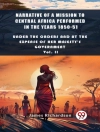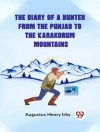Collected here, from a period of nearly five decades, are thirty-six of Norman Lewis’s best articles. In each, his writing crackles with poker-faced wit and stylistic brilliance. As a witness to his times – the good, the bad and the absurd – he was unmatched, and his instinct for important events, and moments, was infallible. His range here includes Ibizan fishermen, an interview with Castro’s executioner, the genocide of the South American indigenous tribes, a paean to Seville and his meeting with a tragic Ernest Hemingway. Lewis told Ian Fleming, who had commissioned him, that the meeting was ‘a shattering experience of the kind likely to sabotage ambition’. Fortunately it didn’t, and the articles assembled between these covers are compulsive, hilarious, tender and beautifully written, at times deeply upsetting and always unforgettable.
Mengenai Pengarang
Norman Lewis was born in 1908. His early childhood was spent partly with his Welsh spiritualist parents in suburbs on the edge of north London, and partly with half-mad aunts in Wales. Forgoing a place at university for lack of funds, he used the income from wedding photography and petty trading
– including selling lost umbrellas and cameras – to finance travels in Spain, Italy, Morocco and the Balkans, as well as racing Bugattis. A visit to southern Arabia and the Yemen on behalf of the intelligence services, including a long voyage by dhow, greatly bolstered his passion for the exotic. During the Second World War he spent three years in the Intelligence Corps in North Africa and Southern Italy. His diaries from that time later became his masterpiece, Naples ’44, written only in 1977. Before the war, he had published two books, but his literary career only took off with the publication of A Dragon Apparent in 1951. Over the following decades he wrote thirty books, half of them novels. In the year of its publication, an omnibus translation of his novels into Russian outsold Tolstoy. After travelling to Brazil in 1968 to research the ethnocide of the indigenous tribes, his later writing also included passionate campaigning on their behalf. Even into his nineties Lewis was enthusiastically travelling to off-beat parts of the world. He died in 2003.












